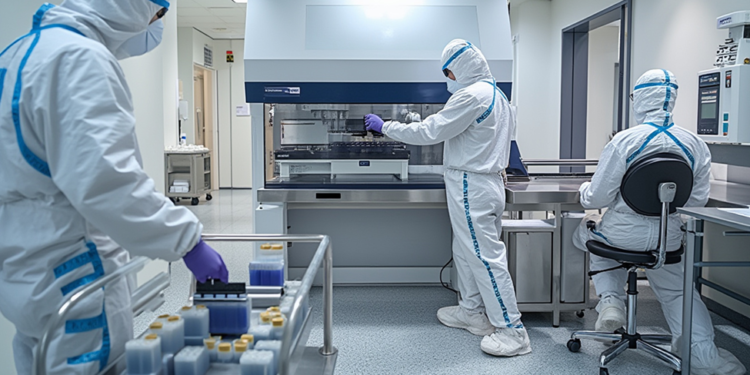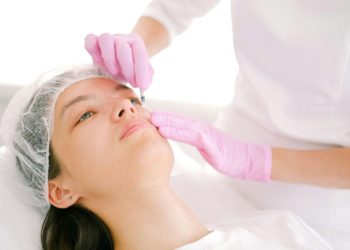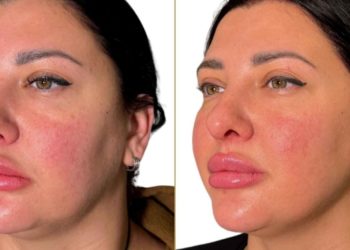Introduction
Mesenchymal Stem Cell (MSC) therapy is an evolving area of regenerative medicine with potential applications in tissue repair and immune modulation. While early research shows promise, challenges remain, particularly in standardization, safety, and efficacy. Rigorous clinical validation is needed before widespread adoption.
The Science Behind MSC Therapy
What Are Mesenchymal Stem Cells (MSCs)?
MSCs are a type of adult stem cell that can differentiate into cells of mesodermal lineage, including osteoblasts (bone cells), chondrocytes (cartilage cells), and adipocytes (fat cells). While they have shown promise in tissue repair, differentiation is a complex process that is not always predictable in clinical settings. Additionally, the degree to which MSCs integrate into host tissues and provide long-term therapeutic effects is still under investigation.
How MSC Therapy Works
MSC therapy uses these cells to support tissue regeneration, modulate immune responses, and stimulate healing. Unlike embryonic stem cells, MSCs are generally derived from adult tissues (e.g., bone marrow, adipose tissue, or umbilical cord blood), which reduces some ethical concerns. However, sourcing methods vary in ethical and regulatory complexity, particularly for umbilical cord-derived MSCs. Another challenge is that MSCs delivered intravenously often get trapped in the lungs, limiting their systemic distribution. Preclinical studies indicate that over 70% of IV-injected MSCs lodge in pulmonary capillaries, potentially reducing effectiveness in distant tissues.
Key Applications and Breakthroughs
Regenerative Medicine
Recent research, including a 2022 study in Stem Cells Translational Medicine (Wang et al., 2022), explored biomaterial scaffolds and fibrin-based delivery systems to enhance MSC retention at injury sites, with some preclinical models showing improved functional recovery. Additionally, stem cell therapy reviews have documented cases where patients experienced significant improvements in tissue repair following MSC therapy.
Neurological Disorders
A Phase II trial in The Lancet Neurology (2021) demonstrated that MSC infusions reduced inflammation and improved function in multiple sclerosis (MS) patients. A 2022 study in Nature Medicine (Zhang et al., 2022) reported improved motor function in 60% of Parkinson’s disease patients after intrathecal MSC delivery. However, larger-scale randomized trials are necessary to confirm these findings.
Diabetes Treatment
A 2023 meta-analysis in Diabetes Care (Lee et al., 2023) found MSC therapy reduced HbA1c levels by 0.8% in type 2 diabetes patients, though no therapies have been approved. The UAE’s National Program for Regenerative Medicine has allocated $270 million over five years to MSC-based diabetes research, with key projects focusing on beta-cell regeneration and immune system modulation to treat type 1 and type 2 diabetes. This investment, launched in 2021 under the UAE Vision 2031 initiative, aims to position the UAE as a leader in regenerative medicine.
Orthopedic Conditions
A randomized trial published in The Journal of Bone and Joint Surgery (2021) demonstrated that intra-articular MSC injections improved knee osteoarthritis pain by 40% at 12 months compared to placebo. Stem cell therapy reviews suggest that some patients have experienced long-term mobility improvements following MSC treatments. However, long-term studies indicate that cartilage regeneration outcomes vary, highlighting the need for standardized protocols. South Korea approved Cartistem, an umbilical cord-derived MSC product, in 2012 for knee cartilage defects, and it has since been integrated into clinical practice.
Immunotherapy
The European Medicines Agency (EMA) approved Alofisel (darvadstrocel) in 2018 for the treatment of complex perianal fistulas in Crohn’s disease. The FDA granted emergency approval for remestemcel-L (Ryoncil) in 2020 for pediatric steroid-refractory graft-versus-host disease, though further trials are needed to confirm its long-term efficacy.
Global Advancements
Asia-Pacific
Japan’s PMDA fast-tracked Temcell (for GVHD) in 2016 under its regenerative medicine laws. South Korea approved Cartistem for knee cartilage defects in 2012, integrating it into clinical practice as an approved treatment for cartilage damage.
Middle East
The UAE is investing $270 million in regenerative medicine, with a specific focus on MSC-based therapies for diabetes and other chronic diseases. Government-led initiatives launched in 2021 under the UAE Vision 2031 aim to optimize MSC therapies for metabolic disorders, with clinical trials focusing on improved MSC sourcing and standardization.
Challenges in MSC Therapy
Standardization
No consensus exists on potency assays – critical for measuring anti-inflammatory (IDO activity) or pro-angiogenic (VEGF secretion) potency. Variability in MSC culture conditions, donor source, and passage number impacts therapeutic effectiveness.
Cost and Accessibility
MSC therapies remain expensive, limiting access for many patients. High costs stem from complex cell processing, manufacturing, and the need for extensive regulatory approval. Insurance coverage for MSC treatments is limited in many countries, further restricting patient access.
Heterogeneity and Treatment Outcomes
MSC therapies exhibit significant heterogeneity due to donor variability and culture conditions. This affects treatment outcomes, making it difficult to establish standardized protocols. Some studies suggest that MSC potency varies based on donor age, tissue source, and passage number, which can lead to inconsistent clinical results.
Delivery and Biodistribution
Due to pulmonary entrapment, researchers are exploring intrathecal and localized injection methods. A 2021 study in Biomaterials (Kim et al., 2021) reported that fibrin scaffolds improved cardiac retention from 2% to 22% in myocardial infarction models. Strategies to enhance MSC biodistribution are being developed to improve therapeutic outcomes.
Tumorigenicity Risks
A 2021 study in The Journal of Bone and Joint Surgery (Hernigou et al., 2021) reported ectopic bone formation in 3/23 patients receiving high-dose MSCs for osteonecrosis. Additionally, there is ongoing debate about whether MSCs may contribute to tumor growth via pro-angiogenic factors. Further research is required to assess long-term safety.
Ethical Considerations
The FDA has issued warnings to over 30 clinics since 2017 for marketing unproven MSC therapies, including unsubstantiated claims for autism and ALS. Regulators emphasize the importance of rigorous clinical validation before broad adoption.
Future Directions
CRISPR-Cas9 and Gene-Edited MSCs
CRISPR is being explored to modify MSCs to enhance therapeutic potential, such as correcting genetic defects or improving MSC survival in hostile environments. Research in Advanced Science (Chen et al., 2023) suggests that CRISPR-enhanced MSCs may improve outcomes in autoimmune diseases.
Conclusion
While MSC therapy holds transformative potential, rigorous standardization and clinical validation are imperative. The next decade will likely see approvals for osteoarthritis and diabetic wound healing, with ongoing Phase III trials such as ClinicalTrials.gov identifier: NCT04219241 evaluating MSC therapies for these conditions. Addressing safety concerns, optimizing delivery strategies, and ensuring affordability remain critical hurdles for widespread adoption.













































































